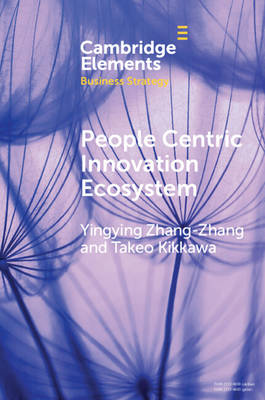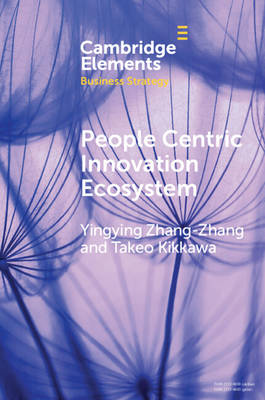
- Afhalen na 1 uur in een winkel met voorraad
- Gratis thuislevering in België vanaf € 30
- Ruim aanbod met 7 miljoen producten
- Afhalen na 1 uur in een winkel met voorraad
- Gratis thuislevering in België vanaf € 30
- Ruim aanbod met 7 miljoen producten
Zoeken
People Centric Innovation Ecosystem
Japanese Management and Practices
Yingying Zhang-Zhang, Takeo Kikkawa
€ 31,95
+ 63 punten
Omschrijving
How can knowledge management function well in a highly dynamic VUCA context? This Element focuses on the context of Japanese management and practices to present the concept of people-centric innovation ecosystem. An overview of Japanese management is provided, from publications in English to the insiders' view of Japanese scholars, combining these sources with interviews and dynamic groups with local managers and case studies to illustrate the state and evolution of Japanese management and practices. Highlighting the people-centricity in Japanese management, its networked innovative capability sustains enterprise development in a highly dynamic VUCA context. The interconnectedness and mutual influence of Japanese and Western management have the potential to generate more general management advancements. This Element aims to contribute to the debate on generalization and contextualization, culture and metaculture, and the coexistence of convergence and divergence. Japanese womenomics and its implications for Asian emerging economic powers are also discussed.
Specificaties
Betrokkenen
- Auteur(s):
- Uitgeverij:
Inhoud
- Aantal bladzijden:
- 75
- Taal:
- Engels
- Reeks:
Eigenschappen
- Productcode (EAN):
- 9781108986717
- Verschijningsdatum:
- 6/07/2023
- Uitvoering:
- Paperback
- Formaat:
- Trade paperback (VS)
- Afmetingen:
- 152 mm x 229 mm
- Gewicht:
- 145 g

Alleen bij Standaard Boekhandel
+ 63 punten op je klantenkaart van Standaard Boekhandel
Beoordelingen
We publiceren alleen reviews die voldoen aan de voorwaarden voor reviews. Bekijk onze voorwaarden voor reviews.











